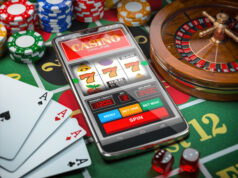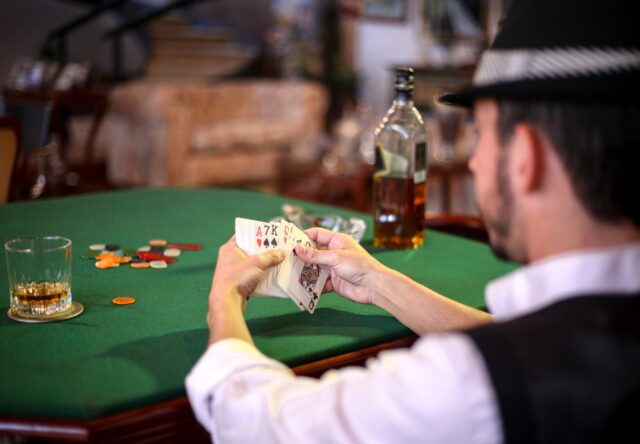
We live in an age where more and more people, especially young individuals, seem to be subject to various types of addiction. The reasons for this are many. Some of them need more fun in their lives, or a way to defeat leisure.
Or a way to cope with certain life circumstances that don’t look bearable. When it comes to gambling, people often opt for it because of that exciting and catchy sense of satisfaction while risking and gaining. It makes them run away from everyday concerns much easier and hope that more money can be made.
Maybe the guilt should be found in the current financial state of the world – not rather splendid, we would all agree on that one. Nowadays, it lets us fall into a psychological trap, believing that we’re actually a part of that apparently wealthy world.
And this… this makes us lose a realistic picture of our true needs. Gambling doesn’t seem to be a kind of social disorder – at first, it looks like a piece of harmless fun.
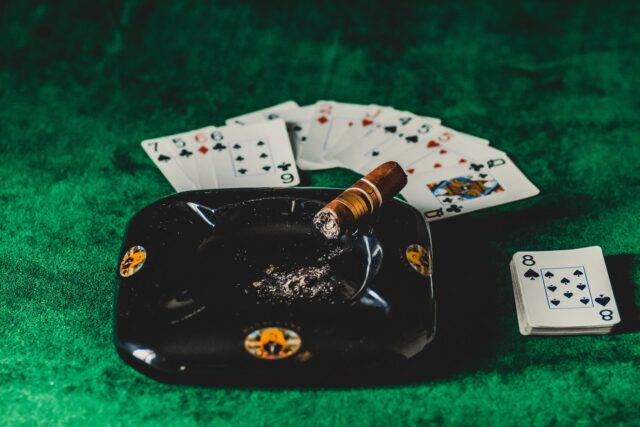
However, the void starts growing once it ceases to remain just a game and starts causing numerous and rather serious problems. It’s a disorder of addiction that later leads to other disorders in the functioning of the psychological, physical and social aspects of life.
Sports betting, poker, slot machines, roulette, traditional and online casinos all over the world… This addiction develops gradually, and the person usually doesn’t notice when they start sinking deeper.
In order to get to know more about the course of things when it comes to gambling, we’ve decided to show you a kind of explanation that will help you understand this much better. What happens in an average gambler’s brain? Let’s find out.
To make things more clear, we’ve divided these pieces of explanation into three parts or phases – gaining, losing and despair phase.
Gaining phase
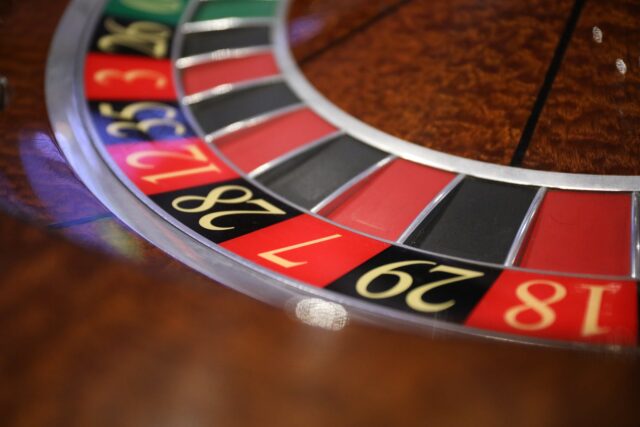
The first phase is the one from which everything begins. It’s all-new, fresh and, we could say, quite unknown to you, but that makes it way more compelling, doesn’t it? It all starts with fun or simple leisure and boredom. At the very beginning, those are often ‘milder’ kinds of betting where only a small, almost unimportant amount is invested.
Observed from a psychological point of view, when a gambling starter suddenly gets that unavoidable beginner’s luck and gains a certain amount of money, a peculiar kind of happiness affects his mind.
Seeing that the investment paid off and that they get the opportunity to grab some more cash, there comes the need to invest as much money as possible to raise profits proportionally to that.
When performing an addictive activity, many biochemical reactions occur in the body. If a certain activity is performed frequently, there’s an increased tolerance.
Better said, the need for the organism to increase the intensity and duration of the activity, in order to achieve the desired effect. That’s why the person keeps looking forward to going on with exciting gambling sessions.
And, it can be any kind of betting – from dog or horse racing, raffles, sports betting, to roulette and slot machines. Just as we don’t divide the drug addicts by the types of drugs they’ve been using, there’s no division into heavier and ‘lighter’ gambling games in terms of developing an addiction. Each one of them can start a real wildfire in our brain.
Losing phase
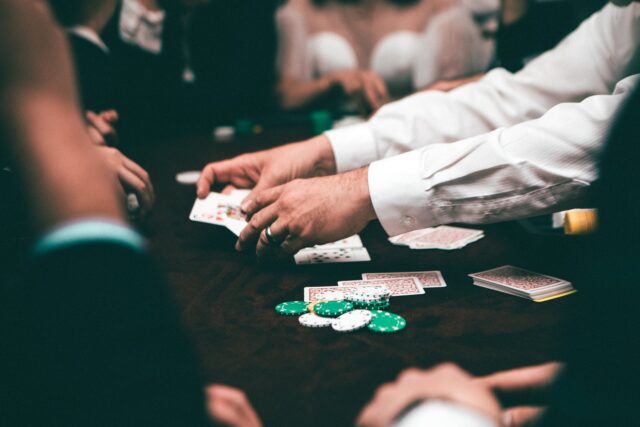
Everything seems nice at first. But at some point, the person starts losing. Beginner’s luck is gone with the wind, and nothing seems to be that smooth and easy anymore. After some time, it stops being fun. And how could it even be good? Certain amounts of money spent.
You start borrowing from your family, friends, relatives, and even acquaintances that you don’t even see very often. From this point, it all becomes a real rollercoaster of psychological impressions. Of course, you don’t lose all the time, but it becomes more frequent with each passing day.
There comes a so-called ‘near-miss effect’, as stated by lioncasinos.com – a specific feeling you get that tells you that you might win. That the win is right in front of you, waiting for you to grab it. And you keep going strong with this, trying to grab all you can, as your brain keeps sending the signals to you. Then again there’s a period of gains and losses.
This feeling makes you want to discover and look for other, more challenging types of games and betting – the money you gained seems smaller than any amount of money you have ever earned and there’s a strong need for having more.
Even when gamblers start to lose money, they still keep playing, hoping that they can “beat” the machine or the roulette. When they lose, their thoughts don’t go in the right direction, but to the completely wrong one, as they keep blaming the bad day for their failed attempts.
This becomes a frequent excuse for trying more and investing those even larger sums of money. Do you see the storm coming? That’s right – it’s getting nearer with every single try.
Despair phase
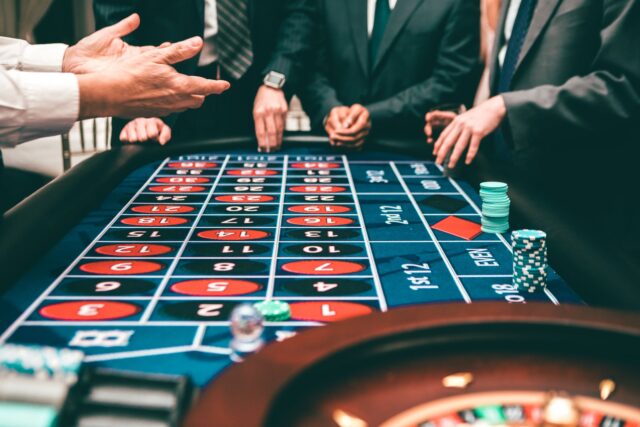
The previous phase of intermittent gains and losses is followed by a period of despair when the gambler doesn’t have the strength to resist going to the casino. It becomes their world. Their thoughts are constantly overwhelmed with gambling and it simply stops being a matter of money and becomes a way of life.
This is probably the worst and the most intensive stage for the human psyche, as the affected person starts being a victim of various negative changes.
This includes not paying attention to essential things in life, such as family, children or friends, getting increasingly absent from home, but also mentally. It also affects other things that are supposed to be performed, such as work and significantly increases the numbers of loans.
The main thing that their brain is telling them is – find the money. They’re always on the lookout for the assets that will allow them to go back to gambling.
Somewhere in this stage, there comes a strong sense of guilt, and this is probably quite familiar to everyone, as they keep saying they’ll never do it again and that they can handle it. What else emerges from all this psychological pressure? Great resistance when someone tries to talk about their problem, and definitely not recognizing that they’re having one.
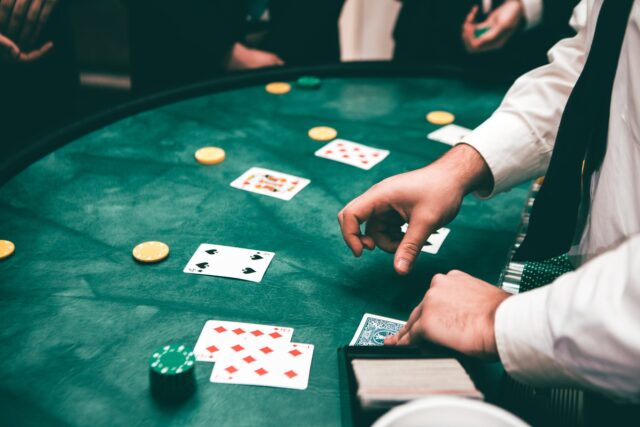
The more a person sinks into the problem, the more intensely they’ll tend to defend or justify their actions.
A short period of abstinence may even cause severe anxiety, increased food intake, insomnia or nightmares and depression. The person knows that what he or she does is bad, but their mental state and weakness doesn’t let them fight against it with a strong will.
It’s stronger than them – that’s how each and every one of them will explain it. This goes on and on, and the only way to try to defeat it is to dig out a truly big eagerness to fight it. If it’s the opposite, the mental state can’t improve – it can only get worse with time.
In the case of gambling addiction, a person has a strong desire and need to continue doing such things, despite being aware of some truly harmful effects and consequences that might emerge.
For some people, it’s even impossible to think about all the negative changes this leisure activity can cause. Having this in mind, what matters is to always be conscious of this whole psychological course of actions in order to be able to prevent the future overwhelmed with vice.

